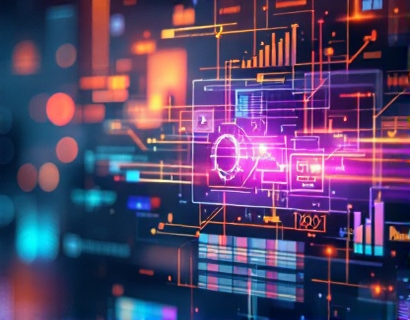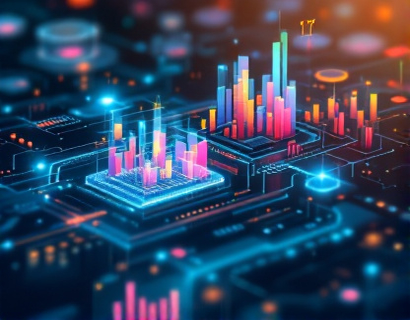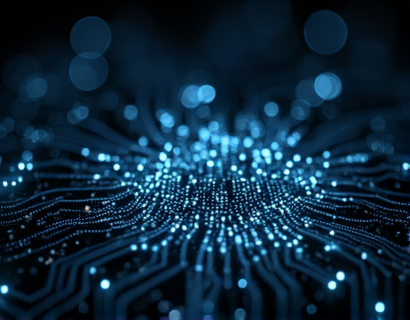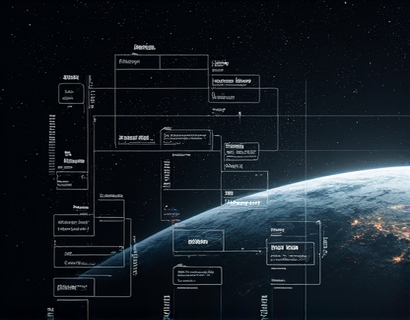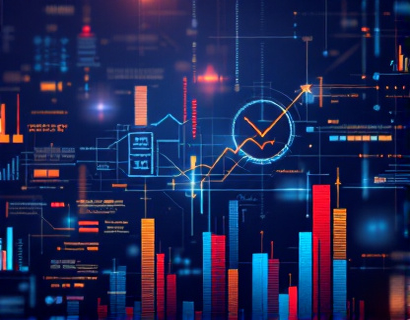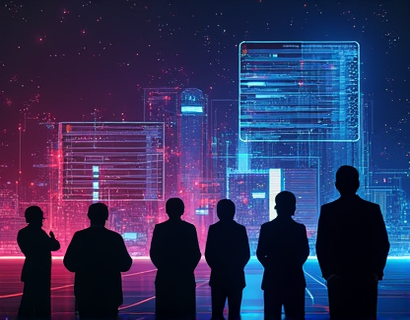Decentralized Productivity Supercharged: Leveraging AI and Crypto for Next-Gen App Innovation
The intersection of artificial intelligence (AI) and cryptocurrency is giving rise to a new era of productivity tools and applications. This convergence is not just about combining two cutting-edge technologies but about creating a paradigm shift in how we approach work, collaboration, and efficiency. For tech professionals and early adopters, this represents an exciting opportunity to harness the power of decentralized systems and intelligent automation to revolutionize app innovation. This article delves into how AI and cryptocurrency are synergistically enhancing productivity, offering insights and examples of decentralized applications that are redefining the digital landscape.
Understanding Decentralized Productivity
Decentralized productivity refers to the use of blockchain technology and decentralized applications (dApps) to streamline and enhance various tasks and workflows. Unlike traditional centralized systems where data and control are held by a single entity, decentralized systems distribute these across a network of nodes. This distribution ensures transparency, security, and resilience, making it an ideal foundation for productivity tools.
The integration of AI into decentralized systems further amplifies their capabilities. AI can process vast amounts of data, learn from patterns, and make intelligent decisions, all of which can be leveraged to optimize productivity. For instance, AI-driven dApps can automate routine tasks, provide personalized recommendations, and enhance collaboration among users.
AI in Decentralized Productivity
AI plays a pivotal role in decentralized productivity by automating complex tasks and providing intelligent insights. One of the key areas where AI shines is in data analysis. Decentralized platforms can utilize AI to analyze data from multiple sources, offering users actionable insights without the need for manual intervention. This capability is particularly valuable in business intelligence, where timely and accurate data analysis can drive strategic decisions.
Another significant application of AI in decentralized productivity is task automation. Smart contracts, a cornerstone of blockchain technology, can be programmed with AI algorithms to execute tasks based on predefined conditions. For example, a smart contract can automatically trigger a payment once certain milestones in a project are met, ensuring seamless and trustless transactions.
AI-powered chatbots and virtual assistants are also transforming how users interact with decentralized applications. These AI-driven interfaces can handle customer support, guide users through complex processes, and provide real-time assistance, all while maintaining the decentralized and secure nature of the platform.
Cryptocurrency and Decentralized Finance (DeFi)
Cryptocurrency and Decentralized Finance (DeFi) are integral to the ecosystem of decentralized productivity. Cryptocurrencies provide a secure and transparent medium of exchange, eliminating the need for intermediaries and reducing transaction costs. This is particularly beneficial for global teams and businesses that require frequent financial transactions.
DeFi platforms build on blockchain technology to offer financial services such as lending, borrowing, and trading without traditional financial institutions. These platforms often integrate AI to enhance their services, offering predictive analytics and automated investment strategies. For productivity-focused applications, DeFi can provide a robust financial backbone, enabling seamless funding, reward systems, and incentive mechanisms.
Enhancing Collaboration and Communication
Collaboration is a critical aspect of productivity, and decentralized tools are redefining how teams work together. Decentralized communication platforms leverage AI to improve message routing, sentiment analysis, and content moderation. These features ensure that team communications are efficient, relevant, and secure.
Blockchain-based identity verification and access control mechanisms enhance security in collaborative environments. AI can further strengthen these mechanisms by detecting and preventing unauthorized access or malicious activities in real-time. This combination of technologies ensures that sensitive information and collaborative efforts remain protected.
Case Studies and Examples
Several decentralized applications are already demonstrating the potential of AI and cryptocurrency in enhancing productivity. One notable example is a decentralized project management tool that uses AI to optimize task allocation and resource management. This tool analyzes historical data and real-time project metrics to assign tasks to team members based on their availability and expertise, ensuring optimal utilization of resources.
Another example is a decentralized content creation platform that leverages AI for content curation and monetization. AI algorithms analyze user preferences and content performance to recommend high-quality content, while smart contracts automate the distribution of earnings to creators based on predefined rules. This platform not only enhances the creative process but also ensures fair compensation for content producers.
Challenges and Considerations
While the potential of AI and cryptocurrency in decentralized productivity is immense, there are several challenges and considerations to keep in mind. Scalability remains a significant issue for blockchain technology, as many networks struggle to handle high transaction volumes efficiently. However, ongoing developments in layer 2 solutions and blockchain optimizations are addressing these concerns.
Interoperability between different blockchain platforms and decentralized applications is another area that requires attention. Standardization and cross-chain technologies are emerging to facilitate seamless interactions and data exchange, enhancing the overall user experience.
User education and adoption are crucial for the widespread implementation of decentralized productivity tools. Providing intuitive interfaces and comprehensive documentation can help bridge the knowledge gap and encourage more users to embrace these innovative solutions.
Future Outlook
The future of decentralized productivity, powered by AI and cryptocurrency, looks promising. As technology continues to evolve, we can expect more sophisticated AI algorithms, improved blockchain scalability, and broader adoption of decentralized applications. The convergence of these technologies will likely lead to the development of more integrated and user-friendly platforms that further enhance productivity and efficiency.
For tech professionals and early adopters, staying informed about these advancements and experimenting with decentralized tools can provide a competitive edge. The decentralized and AI-driven landscape is not only transforming how we work but also opening up new possibilities for innovation and collaboration.
In conclusion, the integration of AI and cryptocurrency in decentralized productivity is paving the way for a more efficient, secure, and collaborative digital future. By leveraging these technologies, we can overcome traditional limitations and unlock new potentials in app innovation and productivity enhancement.










